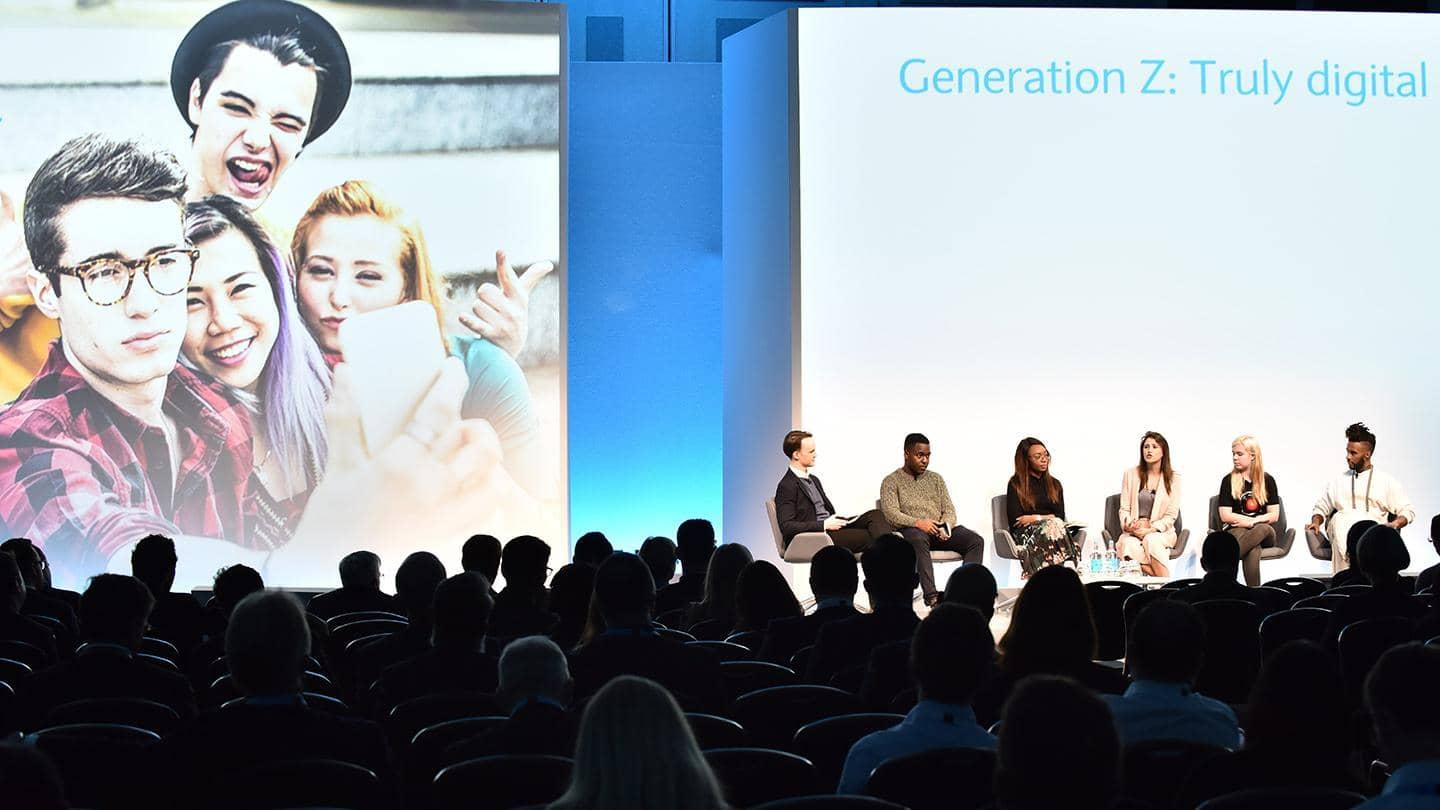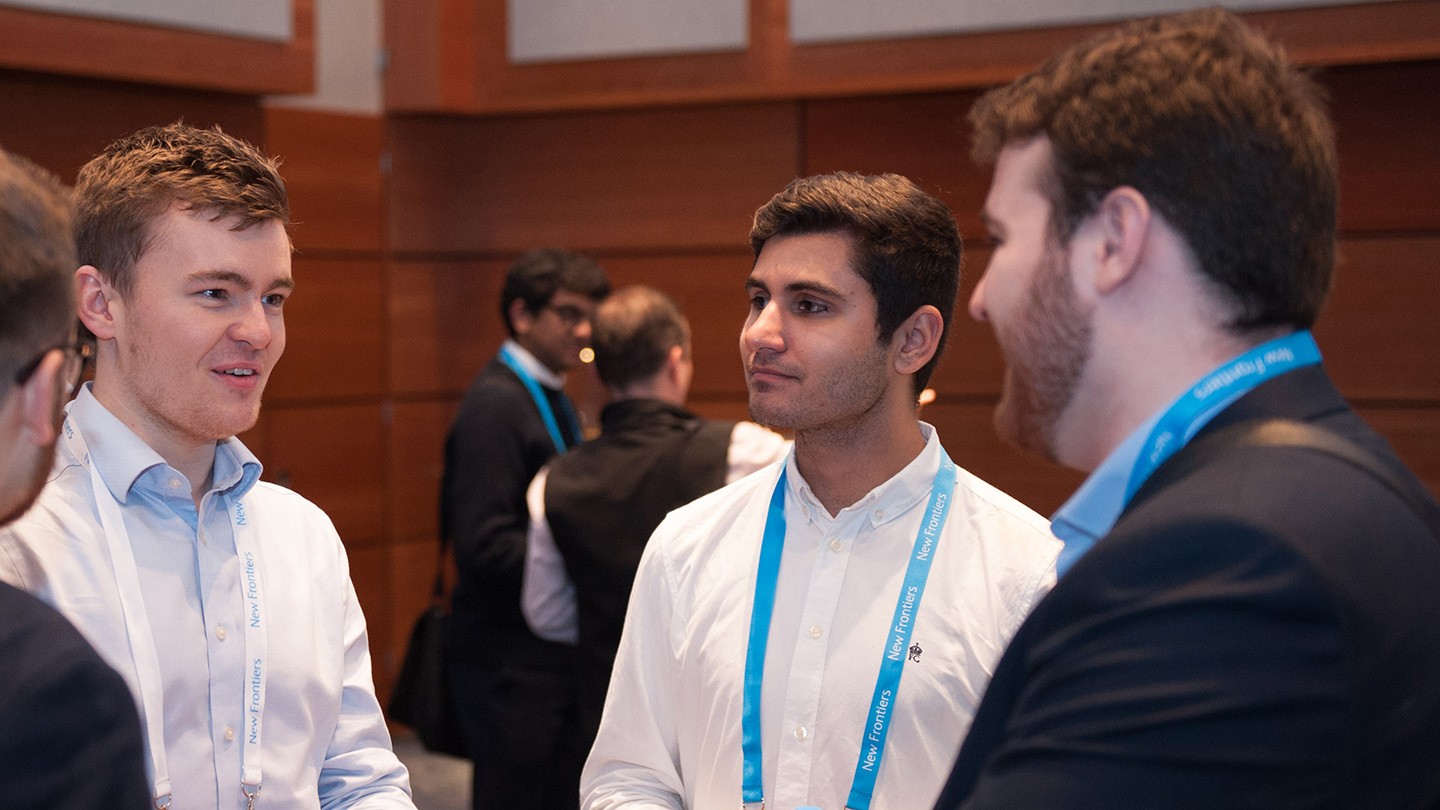
Growth
Generation Z: “not just about ping-pong tables and bean bags”
An inspiring panel of Generation Z entrepreneurs made a big impression at Barclays’ fifth annual New Frontiers conference – including one who started his own business at the age of 14. We share their thoughts on the influence of the digital world, why they’re the “first generation with no fear” – and what businesses can do to attract young talent.
“They’re the first generation of school leavers where job titles like blogger, influencer and e-sports athlete are a career choice,” said Barclays Vice President Tim Keaveney by way of introduction, to a packed crowd at the InterContinental hotel in Greenwich, London. He continued: “Research from Barclays tells us they’re business savvy and entrepreneurial”, but what else do we know about Generation Z?
They’re the generation after millennials – born somewhere between the mid-nineties and early noughties. They’re the indigenous population of the digital age, growing up surrounded by iPads, Instagram and Snapchat – platforms and technology unimaginable to the generations that came before them.
“I was born in 1995, the first year Generation Z was created, so I think I’m a great prototype,” said Bejay Mulenga, entrepreneur and CEO of the Supa Network, an agency that connects creative talent with big business.
Bejay started his first business at 14 running a tuck shop at his secondary school. He has since gone onto consult and work for brands including Sony, Uber and Facebook, and has been awarded a Queen’s Award for Enterprise – an award recognising outstanding UK business achievement – by Her Majesty the Queen.
“For me, this is the first generation with no fear,” he continued. “We’ve grown up with flagship people to look towards on YouTube and Instagram. People who look like us, from similar areas around the world, who have gone out there and made things happen.”
His point was seconded by Kari Lawler, founder of Youth4AI, an artificial intelligence (AI) programme that encourages young people to explore and understand the world of AI. She was accepted onto the ‘Entrepreneurs for the Future’ incubator programme at 14 – an EU supported initiative – and currently works at a Barclays Eagle Lab in Birmingham helping SMEs understand and deploy AI throughout their businesses.
“I feel like young people are eager to put themselves out there,” she said. “We’re also helped by the tools at our disposal. If I want to learn something new, I can find a YouTube tutorial on my phone and master it by the end of the day.”

The discussion took place at Barclays' New Frontiers event
Disrupting the workplace
The conversation moved on to the workplace, and how young people are redefining the very definition of the word.
For Ella Robertson, Managing Director of One Young World – a global youth leadership network – young people are more empowered than ever before, which has led to them disrupting more traditional perceptions of how we work.
“Generation Z has grown up in a time where if something is going wrong in the world, you can go out there and make a difference – whether that’s joining a movement or starting your own campaign,” she explained. “This directly translates to their attitudes in the workplace. People are joining businesses with the expectation that their voices will be heard and they’ll be able to have a significant impact.”
As Generation Z begins to enter the workforce, the panellists agreed it was the responsibility of big businesses to adapt the way they recruit and retain the best young talent.
“It’s about fostering an environment where young people can be entrepreneurial,” said Lola Olaore – founder of social enterprise thinkHER ambition, who featured in the Financial Times’ ‘50 Ethnic Minority Future Leaders’ list for 2018. “I moved from a larger corporation to a smaller one because I wanted to make an impact. It’s not just about ping-pong tables and bean bags, but utilising the talents that young people have.”
“In addition, communication has become way more important than ever before,” said Bejay. “You can no longer have one flimsy appraisal and not back it up. People are looking for monthly appraisals, where they can make actions and progress.”
And even that idea of progress is being reimagined, remarked Youth Goodyear – who sells clothes on peer-to-peer social shopping app Depop. “What people need to realise is Generation Z is interested in passion projects, and ways of making money filter in after that. This means they are restructuring and recreating what it means to have a ‘career’.”
“It’s not so much a career you have now, but rather a portfolio of experiences and challenges,” agreed Bejay. “You might be a creative for years, and then decide to become a coder, and then start writing books. Of course not everyone is doing that, but those who do are achieving amazing things.”
Are they really different?
As the session drew to a close, Tim Keaveney opened questions up to the floor, and there was one particular query that seemed to be on everyone’s lips: is Generation Z truly different, or do they just have different tools?
“They are different,” said Ella Robertson, “and that is because they have had different tools. Older people spent their childhoods playing football in the streets, whereas Generation Z spent it playing Fifa with someone in Japan.”
Lola agreed, citing the wealth of technology available that has moulded their habits. “We’re more financially literate, our habits have changed. Things like digital banking apps mean we can be our own financial advisor, and we’re far more aware of what we are spending.”
“That technology is giving young people more control,” added Ella. “That means they’re coming into the workplace with new levels of energy. And I think that is something that, as a society, we should be truly excited about.”